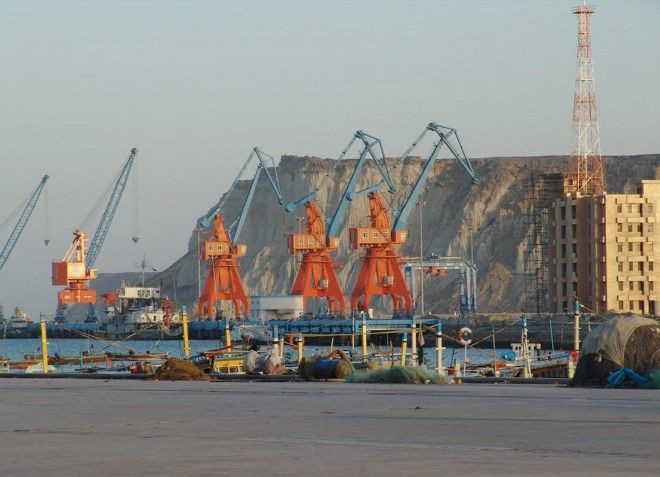Pakistan’s Gwadar Seaport: An Economic Boom Or A Debt Trap Orchestrated By China?

KEY POINTS
- CPEC is a $60 billion project designed to link Pakistani seaports and Xinjiang province in western China
- India claims CPEC is a threat to its sovereignty
- China has been accused of funding infrastructure deals in foreign countries only to benefit itself
Pakistan’s Ministry of Planning and Development has projected that Gwadar, the deep-sea port being built by the Chinese, will contribute $6 billion to Pakistan’s annual gross domestic product by 2025, $24 billion in 2035,and as much as $300 billion by 2050.
However, critics charge that by financing huge infrastructure projects, China is actually placing financially vulnerable countries like Pakistan in a hopeless debt trap to increase Beijing’s political influence in South Asia and the Middle East.
Gwadar, which is on the coast of the Arabian Sea in the southwestern province of Balochistan, is the crown jewel of the $60 billion China Pakistan Economic Corridor, also known as CPEC, a massive project encompassing infrastructure and energy investments designed to closely link Pakistani seaports and Xinjiang province in western China.
Gwadar itself is envisioned as an industrial hub and a major marine trading port creatimg tens of thousands of jobs.
But China’s encroachments into Pakistan have elicited alarm and criticism from both India and the U.S.
In late November, the Chinese government condemned comments by Alice Wells, acting assistant secretary of state for South and Central Asian affairs, who said China’s ongoing investments in Pakistan have created a debt trap that Islamabad from which can never escape.
Wells noted that Pakistan already carries an estimated $15 billion in debt to the Chinese government and an additional $6.7 billion in Chinese commercial debt.
“CPEC is not about aid,” she said. “Now together with non-CPEC Chinese debt payments, China’s going to take a growing toll on the Pakistan economy, especially when the bulk of payments start to come due in the next four to six years. Even if loan payments are deferred, they’re going to hang over Pakistan’s economic development potential, hamstringing [Pakistani] Prime Minister [Imran] Khan’s reform agenda.”
Wells also claimed these huge deals only benefit Beijing.
“CPEC relies primarily on Chinese workers and supplies, even amid rising unemployment in Pakistan," she said.
Wells' comments echoed earlier words by U.S. Secretary of State Mike Pompeo who blasted China for conducting “corrupt infrastructure deals in exchange for political influence” and using “bribe-fueled debt-trap diplomacy.”
In response to Wells’ salvo, Yao Jing, the Chinese ambassador to Pakistan countered: "I would like to remind my American colleague that if you are really making this kind of allegation, please be careful, show your evidence, give me evidence; we will take action. China will never, ever ask for these loan repayments as long as [Pakistan is] in need of this money. If Pakistan needs it, we keep it here."
The Indian government has repeatedly criticized CPEC, citing among other things that it “challenges Indian sovereignty” since the corridor from Gwadar to western China passes through Gilgit-Baltistan in Pakistan-occupied Kashmir, which India considers its own territory.
Bhavneet Kaur Guliani, an Indian author, wrote that Pakistan is “sinking into a quicksand of debt” due to its growing financial dependence on China, which “knows how to take advantage of a country in need of credit and leverage it to expand its dominance in the world.”
CPEC will not only trap Pakistan in a web of permanent debt, Guliani wrote, but also provide China with “unprecedented access to the Arabian Sea and the Indian Ocean through the Gwadar port.”
Pakistan, she added, is in no shape to ever pay back the Chinese government. Guliani noted that Pakistan’s foreign exchange reserves have plunged to about $9 billion this year from $16.4 billion two years ago while the country’s central bank has devalued the currency three times since last December.
“Pakistan will have to repay the Chinese loans and also pay dividends in dollars to Chinese investors before it can even begin to think about reaping the benefits of the CPEC project,” she wrote. “If Pakistan fails to meet its debt obligations, China will seize control of its collateral, the details of which are not public yet. This is what China did with Sri Lanka and some other African countries in the past.”
© Copyright IBTimes 2025. All rights reserved.





















